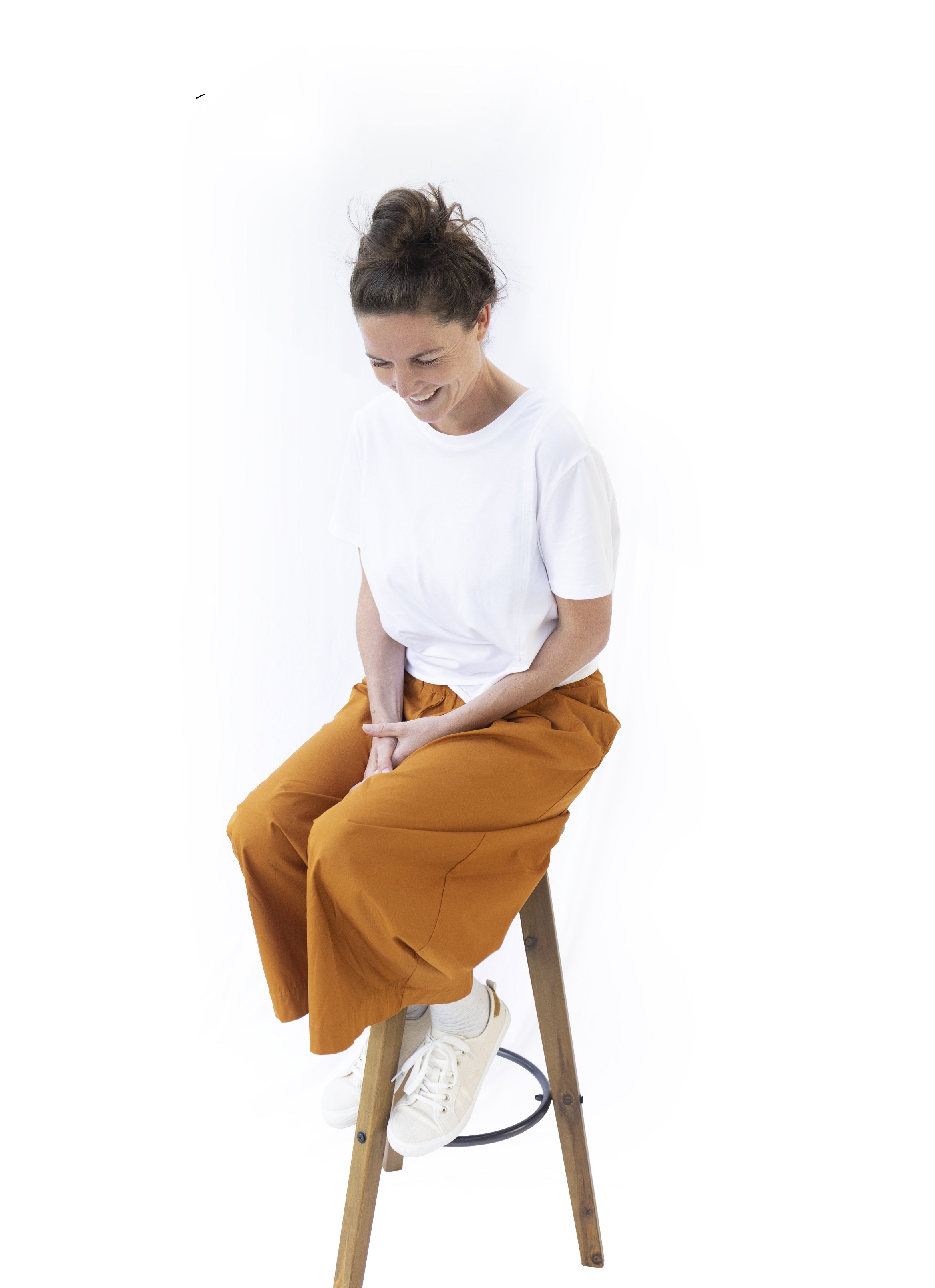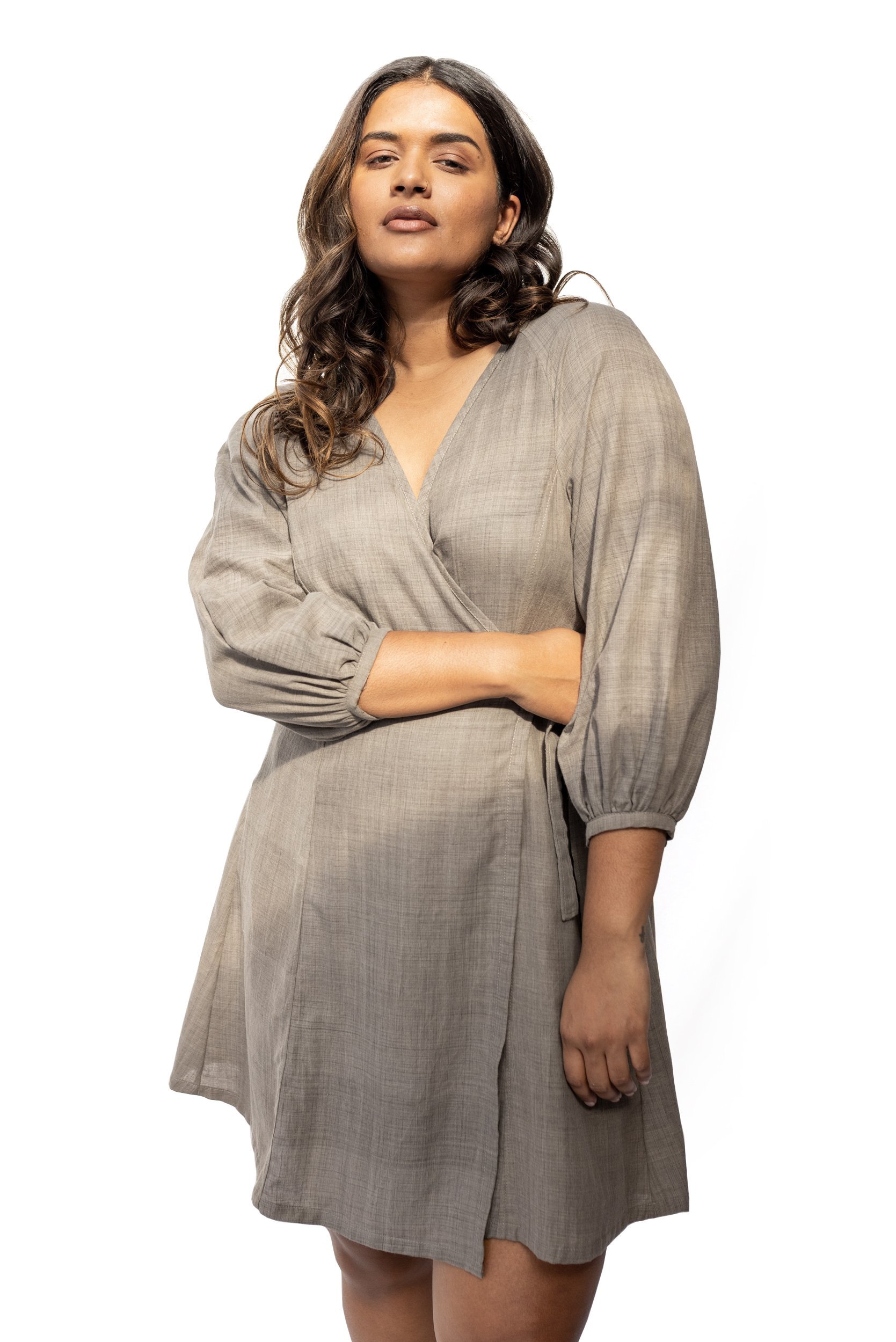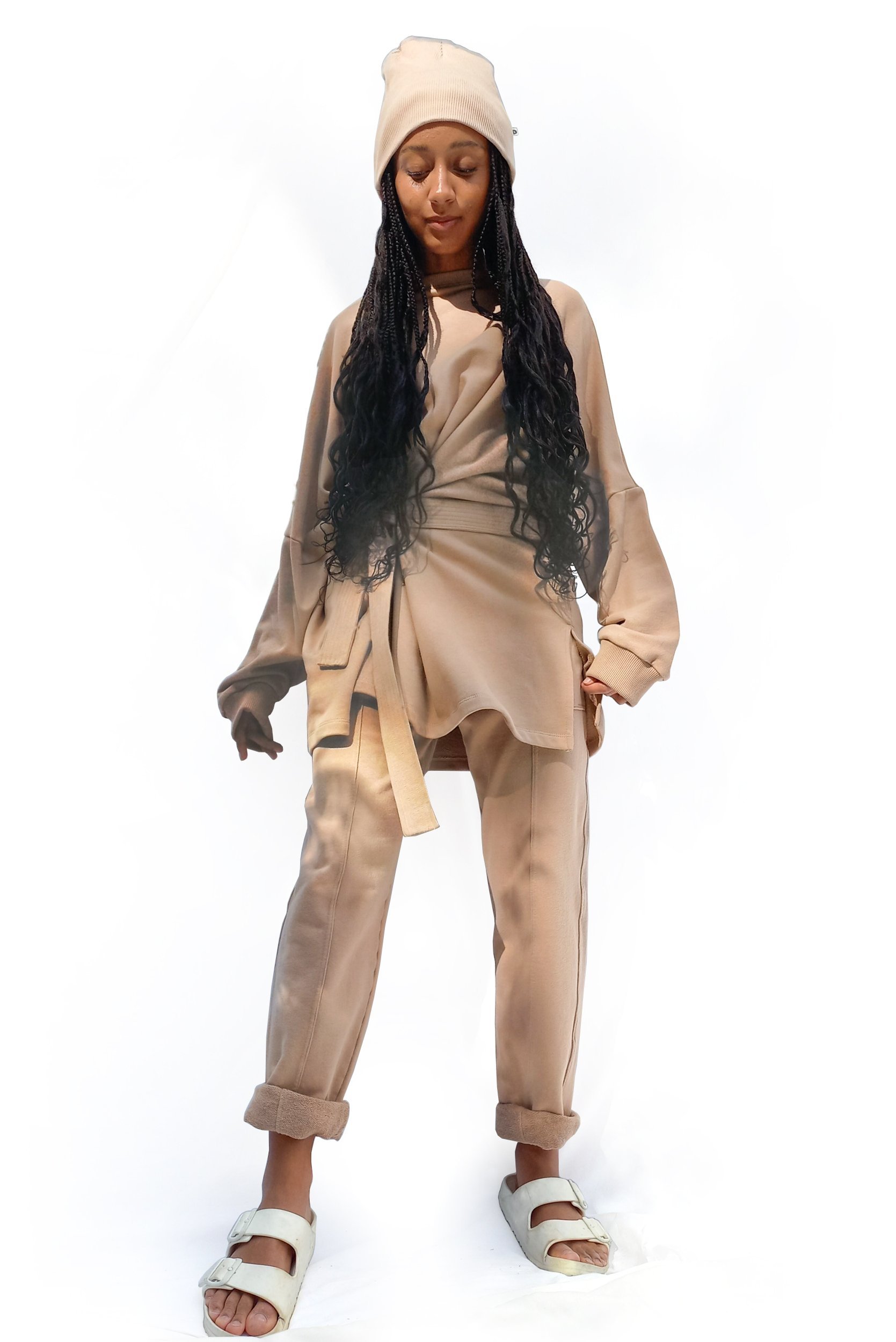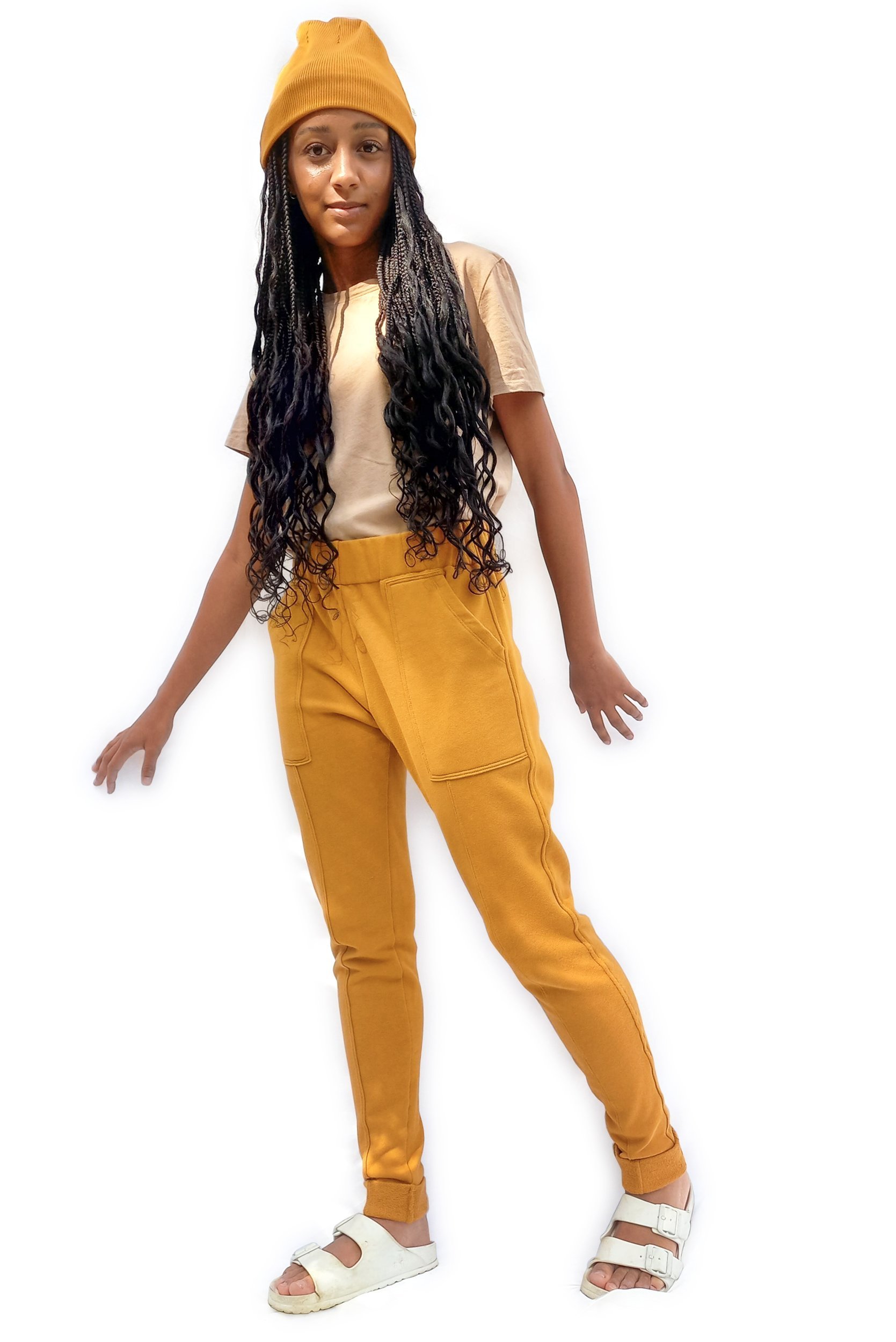
Paris, London, Dunedin, Auckland, Clyde — from fashion capitals to regional New Zealand, Marielle van de Ven has found smaller to be better in many ways.
It has been a journey she never envisaged when she started out as a fresh-faced master’s fashion graduate from the Royal College of Art in London.
Back then she was excited to be awarded a scholarship at the Mittelmoda Fashion Awards to travel to New Zealand 12 years ago and work at Otago Polytechnic’s fashion school passing on her knowledge to Dunedin fashion students. She also helped with the emerging designer collection for iD in 2011.
"I wouldn’t be in New Zealand if it wasn’t for iD fashion week."
She returned to London, but there was always a special place in her heart for Dunedin, so when Margi Robertson from NomD offered her a job she returned to take it up and spent three years designing for the top Dunedin label.
"My last time at iD was 8 years ago with NomD."
After that she took up a job with Karen Walker in Auckland before she headed back to Europe to work.
"At that stage in my career I became more and more aware of the negative impact the industry and garment production were having on the environment. It became harder for me to keep designing and putting more product into the world."
Van de Ven, who is from the Netherlands, had little knowledge of the people who made the clothing and the conditions they worked and lived in and where the fabric was coming from.
"I realised as a designer I knew so little, like really what was happening on the floors in the garment factories. Something needed to change. I wasn’t inspired to design more and more product that was making such an impact."

"For me it was quite incredible. To do something useful with a skill I had to create change in the industry and show it was possible to have garment production with a softer footprint and be proud of the industry again — that had been missing for me. Showing it could be done, has to be done."
She loved what the company was doing and its ethos of having 100% of its profits go back to Dey Tmey and so offered to help out.
"I saw their products and thought they needed some help so I tried to get their products looking better and offered to help for a year for free."
Unfortunately, she could not continue to do the work for free and pay the bills so when she was offered a job in Antwerp she took it.
It was not long before she and her partner decided to move back to New Zealand and she took up a full-time job with ReCreate.
"It’s an industry I thought I wouldn’t be able to continue with but to turn it around to apply my skills and my values, I’m very lucky."
She now designs all the garments from her home in Clyde "of all places", having ended up in the small Central Otago town during lockdown as her partner’s family comes from there.
"It’s a bit different being creative in a small town in New Zealand, especially after living in big cities. It’s been an interesting process."
They had just returned from Europe and were working remotely while travelling the country prior to lockdown. Her partner is a writer.
"We didn’t know where we wanted to live but we knew we didn’t want to come back to Auckland. Then lockdown hit and it became a bit challenging."

"It’s been really nice. Three years later we’re still here."
Travel has also influenced her design style as people dress completely differently living in New Zealand compared to European fashion weeks or travelling as van de Ven did a lot of before her return to New Zealand.
"I lived out of carry-on luggage for months on end. You just wanted a good piece of quality clothing that is versatile and you can wear it day after day. That shifted my perspective as a designer and my design aesthetic."
Creating good quality pieces that "still look amazing" but can be thrown in a bag and do not need steamed or ironed is important to her. Clothes that can be worn to the office, getting the children from school or out for dinner.
"That they do all those jobs is really important."
Once van de Ven designs the garments, the designs are sent to ReCreate’s sewing centre in Cambodia to be made.
"It gets people out of the slums, out of prostitution, we take them in and train them up in sewing and pattern making. Also they’ve never been to school so they can’t read or write so we provide that. More than that we provide them with the whole package. We help them secure mortgages to buy a home and help them with savings and make sure the kids go to school and university. To really turn things around for them.
"We hopefully provide a future for them and the next generation."
The team in Cambodia makes the samples and prior to Covid lockdowns van de Ven would travel over to develop collections and do training. Unable to travel there in recent years they have been sending photographs of the pieces and van de Ven draws over the top indicating any changes and sends them back.
"We’re still making sure they have all the skills possible. To have the skill is such an asset for them."
ReCreates’ garments do not follow fashion trends.

They are made from organic cottons with a neutral colour palette. They do not use a big range of fabrics to ensure what they do use meets their standards.
"It’s not just helping the one community that makes our garments, we don’t want to help one and neglect another. Across the board we want a really soft footprint and really look after the farmers that grow our cotton."
Another priority is ensuring nothing from their garments goes into landfill which has meant forgoing zips.
"We’re closing our loop, we’re fully circular which means at very end of the lifetime of our garments the fabrics get shredded and woven into new textiles."
So when van de Ven is designing the garments she needs to take that into consideration.
"We design toward our values, that is huge to us."
Deciding to remove zips from their clothing, especially pants, has been a huge challenge.
"It’s taken a couple of years to get our heads around that but challenges create new opportunities and we have finally nailed it."
They now use buttons which can easily be snapped off a garment and elastic which meets their standards. This means all her pants now have elastic waistbands.
The range also includes tops, dresses and sweatshirts.
"We keep it simple. All our ranges are trans-seasonal but we don’t do big winter coats or anything like that."

They only follow seasonal trends that they feel are sustainable.
"We don’t feel the need for that. We have to rethink what we wear. Its really important we do not design a sleeve that people say that is so last year. We design our silhouette with that in mind."
Looking back, she now sees the things that drew her to the fashion industry as a young designer are the things that put her off now.
"Back in high school fashion sounds very exciting and I was so inspired by what other designers were doing. I loved Paris Fashion Week, New York Fashion Week but having done fashion weeks for many years I’m very happy not to be part of it anymore. I loved it for years but now its different parts of the industry I’m drawn to."
The Russell Henderson Trust has supported the showcase of Central Otago designers — ReCreate, New Lands and Margaret Wray — at iD.
Capsule collections
Other Central Otago designers presenting capsule collections are:
- New Lands, Arrowtown-based and designed by Natalie Newlands, who used to own clothing store Angel Devine and has previously worked for NomD. She concentrates on comfortable wardrobe staples such as her knitwear and lambskin trousers. She will be presenting her "Faces" — Autumn Winter collection.
- Margaret Wray, Clyde-based, bridal and evening wear design label lead by Jamie Richards, who spent 15 years in London fashion houses. Creates vintage-inspired pieces using sumptuous fabrics from Europe. Will be presenting her "Colore sulla bella donna" collection.
TO SEE
ReCreate at iD Dunedin Fashion Show, Dunedin Railway Station, May 31 and April 1.











